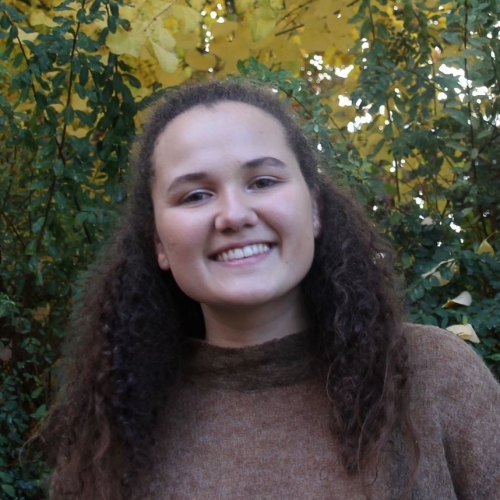
Anastassia Demeshko
The University Of Queensland
For as long as I can remember, science and maths have been key to fuelling my deepest curiosities and venturing the world to understand what I am most passionate about. Having many interests, I am yet to finalise the exact direction of my career. However, through studying a Bachelor of Biomedical Science at UQ, conducting my Honours project at the University of Oxford, and now pursuing a Master’s in public health, I know that better understanding biological and health systems is what I am enthusiastic about. I am currently exploring the potential of bioinformatics as part of a UQ summer research project, which led me to attending AMSI BioInfoSummer.
Can you give me a quick overview of the type of mathematics you are studying and its potential applications or outcomes
There is an ever-increasing amount of biological data that is being collected and little understanding behind what it means. This is where bioinformatics comes in, and specifically in the context of cancer, it can aid in developing our knowledge of the disease to find better treatment options. The aim of my summer research project is to mine cancer data to identify rules governing dynamic DNA changes, specifically the epigenetic events of DNA methylation.
How did you get into bioinformatics?
My general love for genetics and a past research project investigating cancer physicians’ views on genomics in medicine inspired me to understand what goes on in the lab to generate a patient’s genomic results. This encouraged me to seek out the project I am currently working on.
What advice would you give to your younger self or others wanting to studying the mathematical sciences?
If you enjoy something (like maths), take a course, learn about it, and explore the options for how you can integrate it into your career. Following the conventional career pathways that we often hear about at school/in society, can often limit you from pursuing something that can actually turn out pretty cool.
What was your motivation for attending AMSI BioInfoSummer?
I heard about the conference from my supervisor for my summer research project who previously attended AMSI BioInfoSummer (Ariane Mora). I was motivated to attend the conference to get an understanding of the different avenues one can go down, when pursuing a career in bioinformatics.
You received an AMSI BioInfoSummer registration scholarship to attend AMSI BioInfoSummer. How important was this in terms of your ability to attend and fully participate in the sessions throughout the week?
The registration scholarship was of great help (especially with being a student) and motivated me to participate in all the sessions throughout the week.
What was your main take away from AMSI BioInfoSummer?
My main take-away was to ‘watch this space’. Bioinformatics is a rapidly evolving, multidisciplinary field, that has enormous potential. Both to expand our understanding of biological systems and find better solutions to our medical problems. Therefore, I definitely think I should get more involved in learning more about bioinformatics before it expands even more!
If a peer asked you if they should attend AMSI BioInfoSummer, how would you describe the conference to them?
AMSI BioInfoSummer provides you with both a practical and theoretical insight into the areas of bioinformatics that are key contributors to the field. Learning from leading international researchers is eye-opening and inspiring, as you get to see the great potential of contributing to this field of research.
BioInfoSummer was held as a virtual event for the first time in 2020. What was the biggest positive from your point of view of holding it in this format and/or the biggest challenge?
This was my first virtual conference and my biggest positive was the ease at which we could attend all the sessions via Zoom around our daily schedule. As one would expect, a challenge of the online format was the lack of human interaction; communication and networking comes a bit more naturally at in-person conferences.
Where do you want the mathematical sciences to take you? Where do you see yourself in five or ten years’ time?
My ability to predict the future is limited by my current knowledge of what I can achieve at this point in time, so I do not usually like to define any specifics. However, I hope it will be doing something that is meaningful, fuels my curiosity and challenges my abilities.
2020 has been a very unusual and challenging year. What is one thing you have learnt about yourself this year? Or a new skill you have developed?
2020 taught me a lot about myself. However, a notable lesson was that – you have time, and you will always have time. It is often a matter of better-prioritising and habituating tasks, rather than saying that you are ‘too busy’.

